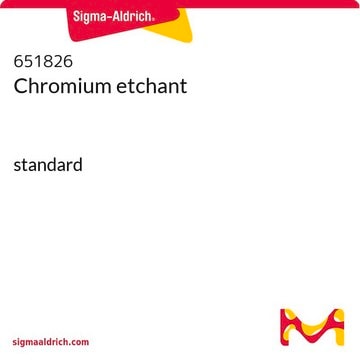650501
Acetone
HPLC Plus, for HPLC, GC, and residue analysis, ≥99.9%
About This Item
Recommended Products
grade
HPLC Plus
HPLC grade
for residue analysis
Agency
suitable for EPA 1613
suitable for EPA 1633
vapor density
2 (vs air)
vapor pressure
184 mmHg ( 20 °C)
Assay
≥99.9%
form
liquid
expl. lim.
13.2 %
technique(s)
HPLC: suitable
gas chromatography (GC): suitable
impurities
≤0.5% water
≤1.0 ppb Fluorescence (quinine) at 365 nm
evapn. residue
≤0.0003%
halogenated residue
<10 ng/L (as heptachlor epoxide)
refractive index
n20/D 1.359 (lit.)
pH
5-6 (20 °C, 395 g/L)
bp
56 °C/760 mmHg (lit.)
mp
−94 °C (lit.)
solubility
water: miscible
density
0.791 g/mL at 25 °C (lit.)
λ
H2O reference
UV absorption
λ: 330 nm Amax: 1.0
λ: 340 nm Amax: 0.06
λ: 350 nm Amax: 0.01
λ: 375-400 nm Amax: 0.005
application(s)
food and beverages
format
neat
SMILES string
CC(C)=O
InChI
1S/C3H6O/c1-3(2)4/h1-2H3
InChI key
CSCPPACGZOOCGX-UHFFFAOYSA-N
Looking for similar products? Visit Product Comparison Guide
General description
Application
- NMR spectroscopic evaluation of glucose metabolism in biological samples (blood).
- Preparation of 13wt% amorphous poly (lactic acid) (PLA) solution, which was required for the preparation of electrospun PLA membranes.
- As a precursor for the synthesis of methyl isobutyl ketone (MIBK) in the presence of sulfonated graphene oxide-Pd/cordierite catalyst.
- Synthesis of (4-hydroxymethyl-2,2-dimethyl-1,3-dioxolane), a solketal from glycerol using supercritical fluids (SCF) technology.
- 1-isopropylidene-2-methylhydrazine
- 1-isopropylidene-2-hydroxyethylhydrazine
- 1-isopropylidene-2-formylhydrazine
Signal Word
Danger
Hazard Statements
Precautionary Statements
Hazard Classifications
Eye Irrit. 2 - Flam. Liq. 2 - STOT SE 3
Target Organs
Central nervous system
Supplementary Hazards
Storage Class Code
3 - Flammable liquids
WGK
WGK 1
Flash Point(F)
-6.2 °F
Flash Point(C)
-21.2 °C
Certificates of Analysis (COA)
Search for Certificates of Analysis (COA) by entering the products Lot/Batch Number. Lot and Batch Numbers can be found on a product’s label following the words ‘Lot’ or ‘Batch’.
Already Own This Product?
Find documentation for the products that you have recently purchased in the Document Library.
Customers Also Viewed
Articles
Substances are said to be miscible in one another if they dissolve to form a uniform solution. Bookmark or download our miscibility table for common lab solvents.
Related Content
This page is intended to make it easier to find the consumables you need based on the analytical method you’re using. Methods included on this page come from the EPA, Standard Methods and ASTM.
Our team of scientists has experience in all areas of research including Life Science, Material Science, Chemical Synthesis, Chromatography, Analytical and many others.
Contact Technical Service




